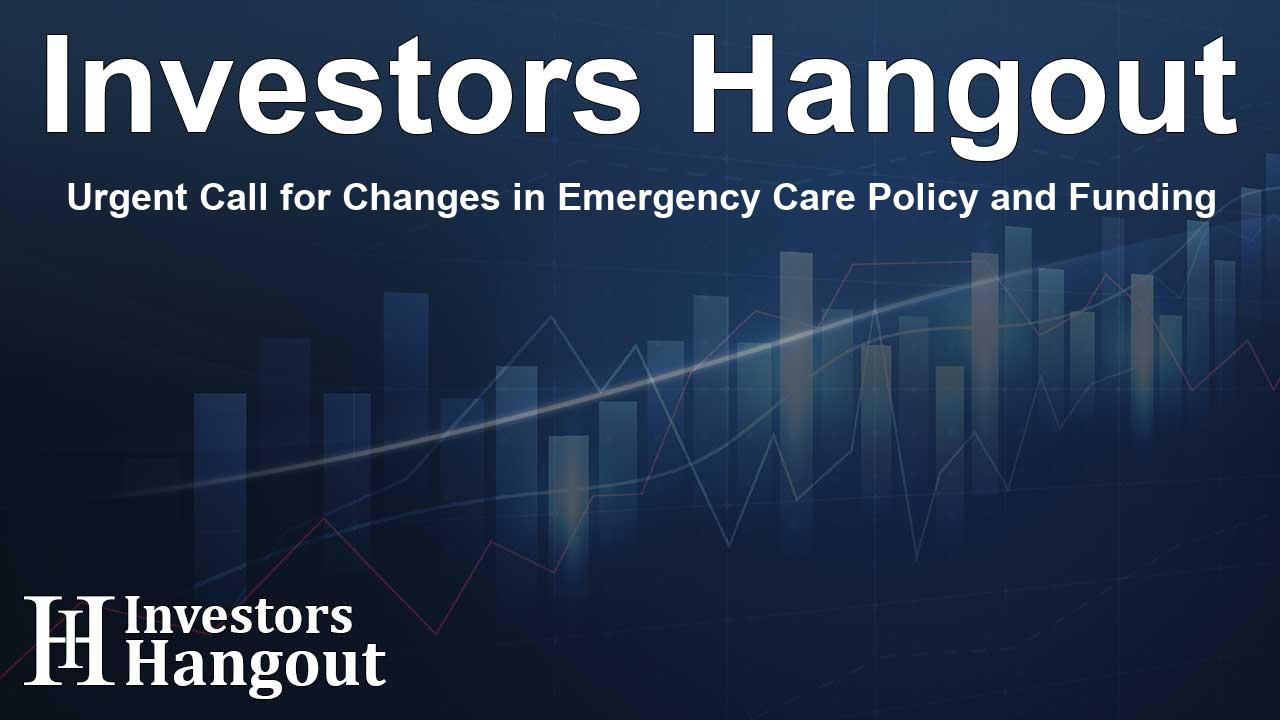Urgent Call for Changes in Emergency Care Policy and Funding

Urgent Call for Changes in Emergency Care Policy and Funding
Emergency medicine leaders call for policy changes, increased oversight of health insurer consolidation.
Emergency physicians throughout the nation are facing unprecedented financial and operational pressures that jeopardize their ability to deliver lifesaving care. This alarming situation has been highlighted in a recent comprehensive report, which illustrates the pressing need for substantial policy and payment reforms to maintain the vital role of emergency departments within the healthcare infrastructure.
Emergency medicine plays a crucial part in the healthcare system, offering essential services to every patient, regardless of their insurance situation or their ability to pay. Dr. Alison Haddock, president of the American College of Emergency Physicians (ACEP), passionately emphasized the consequences of inaction, stating that particularly vulnerable populations—those who are underinsured or uninsured, rural communities, and older adults—are at risk of losing access to emergency care unless there are immediate changes to address payment disparities and the rising tide of uncompensated care.
Mandated by the Emergency Medical Treatment and Labor Act (EMTALA), emergency physicians ensure essential access to care for all individuals. Despite accounting for only four percent of the physician workforce, they provide around two-thirds of acute care to uninsured patients, underscoring the critical role they play in the healthcare system.
Key Findings from the Recent Report
- Financial Challenges: The study reveals alarming trends, indicating that declining physician payments and increasing operational costs, coupled with the burden of uncompensated care, are putting emergency medicine, especially independent practices, at financial risk. From 2018 to 2022, both in-network and out-of-network payments from commercial insurance plummeted by 10.9 percent and 47.7 percent respectively, while payments from Medicare and Medicaid per visit have also decreased by 3.8 percent.
- Ineffective Payment Models: The current payment model for emergency service providers fails to adequately compensate emergency department physicians for their critical services. Approximately 20 percent of expected payments across all payer types remain unpaid, resulting in an annual loss of roughly $5.9 billion.
- Necessary Policy Changes: The report advocates for meaningful policy reforms to ensure fair and timely reimbursement for emergency services. Proposed solutions include securing dedicated funding for EMTALA-related care and imposing stricter penalties on insurers for unlawful practices that undercut payment and coverage.
The document also highlights significant challenges tied to the skyrocketing prevalence of negative payer behaviors and increasing consolidation in the healthcare sector. Practices such as delaying and denying claims, reducing payments, and the undervaluation of emergency services create a financial strain on emergency departments. This stress complicates operations for emergency physicians, contributing to the risk of clinic closures or acquisitions.
According to Patrick Velliky, chair of the Emergency Medicine Policy Institute, immediate actions can be taken to combat health insurer consolidation and the negative practices that threaten both patient health and the viability of emergency physicians. He warns that if these detrimental behaviors continue unchecked, they pose risks to the survival of emergency facilities and the patients who depend on them for urgent care.
About the Emergency Medicine Policy Institute
The Emergency Medicine Policy Institute (EMPI) was established to unify the collective voices within the emergency medicine community. Its mission is to support and disseminate pivotal findings to both policymakers and the public regarding the value of emergency medical services. By collaborating with key stakeholders—ranging from resident representatives to academic leaders—EMPI ensures that emergency medicine has a robust and unified representation.
About the American College of Emergency Physicians
The American College of Emergency Physicians (ACEP) represents the national interests of emergency medicine. Through ongoing education, research initiatives, advocacy, and public outreach programs, ACEP strives to improve emergency care for its 40,000 physician members and the more than 150 million patients they serve annually.
Frequently Asked Questions
What are the main concerns raised in the report regarding emergency care?
The report highlights financial and operational strains on emergency care, emphasizing the need for policy reforms to ensure fair compensation and sustainability for emergency departments.
How does the current payment system affect emergency physicians?
Many emergency physicians face declining payments from insurers, leading to a significant amount of uncompensated care that threatens their practices.
Who is advocating for these changes?
Leaders from the American College of Emergency Physicians and the Emergency Medicine Policy Institute are calling for urgent reforms to address these industry challenges.
Why are independent emergency practices particularly at risk?
They are experiencing more significant financial burdens due to declining payments, which threaten their operational viability and ability to provide care.
What actions are recommended to improve the situation?
Recommendations include policy reforms to secure funding for emergency services, strengthen penalties against insurers for unfair practices, and allocate resources for public health preparedness.
About The Author
Contact Owen Jenkins privately here. Or send an email with ATTN: Owen Jenkins as the subject to contact@investorshangout.com.
About Investors Hangout
Investors Hangout is a leading online stock forum for financial discussion and learning, offering a wide range of free tools and resources. It draws in traders of all levels, who exchange market knowledge, investigate trading tactics, and keep an eye on industry developments in real time. Featuring financial articles, stock message boards, quotes, charts, company profiles, and live news updates. Through cooperative learning and a wealth of informational resources, it helps users from novices creating their first portfolios to experts honing their techniques. Join Investors Hangout today: https://investorshangout.com/
The content of this article is based on factual, publicly available information and does not represent legal, financial, or investment advice. Investors Hangout does not offer financial advice, and the author is not a licensed financial advisor. Consult a qualified advisor before making any financial or investment decisions based on this article. This article should not be considered advice to purchase, sell, or hold any securities or other investments. If any of the material provided here is inaccurate, please contact us for corrections.
